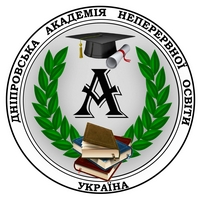PROSPECTS OF APPLICATION OF THE EXPERIENCE OF INSTITUTIONALIZATION OF LOBBYING IN THE USA IN THE DOMESTIC SYSTEM OF PUBLIC ADMINISTRATION
Abstract
Based on domestic and foreign sources, the article analyzes the experience of the USA regarding the institutionalization of lobbying activities and makes a generalization about the possibility of its use in the domestic system of public administration. It is shown that the goals of the institutionalization of lobbying activities are to ensure the rights of citizens to participate in the adoption and implementation of management decisions and the activities of government bodies in general. It is substantiated that the development of lobbying contributes to the effectiveness of public control in interactions between state structures and interest groups, which is a mechanism for minimizing corruption. It is noted that the USA is a kind of standard for the institutionalization of lobbying in the system of public administration, since it was here that it was started in its modern form and it is here that legislation on lobbying has the longest history and, accordingly, detailed regulation of the object of regulation. For domestic legislators, the systematic development of the conceptual apparatus in the field of lobbying activity regulation, which includes the definition of 16 terms, is primarily important in this law. The law regulates not only the relations between lobbyists and legislators, but lobbying activities in the sphere of executive power. US lobbying legislation also defines the characteristics of lobbying activity as professional, and also has a perfect procedure for registration and submission of quarterly reports of lobbyists and a system of penalties for violations of lobbying legislation. At the same time, it is shown that the American system of lobbying regulation was not very effective in combating political corruption in the US legislative system. It was concluded that the American legislation on the regulation of lobbying can be taken as a basis for the development of the most important component of domestic legislation related to the definition of the subject and lobbying activity, as well as the concept of this activity itself. And this is the main prerequisite for successful public-management regulation of the functioning of this institute in a standardized form, which is an urgent task for the development of the domestic public management system.
References
2. Газізов М. М. Адаптація досвіду лобістської діяльності країн розвиненої демократії в Україні. Актуальні проблеми державного управління. 2016. № 1. С. 124-130.
3. Козинець О. Г., Новомлинець А. О. Лобізм у політиці: зарубіжний досвід та українські реалії. Аналітично-порівняльне правознавство. 2023. № 1. С. 68-71.
4. Лавренов Д. А. Зарубіжний досвід правового забезпечення лобізму та його адаптація до українських політичних реалій. Політологічний вісник. 2014. Вип. 73. С. 452–469.
5. Муртіщева А. О., Врещ Ю. О., Радченко О. А. Правове регулювання лобізму: досвід зарубіжних країн, перспективи для України. 2020. № 5. С. 66-73.
6. Нестерович В. Суб’єктна та об’єктна складові інституту лобіювання у США. Віче. 2010. № 3. С. 16-21.
7. Новіков О. В., Приблуда П. М. Правове регулювання лобізму в Україні через призму іноземного досвіду. Міжнародний науковий журнал «Інтернаука». 2019. № 6(2). С. 64-68.
8. Офіційний сайт Департаменту юстиції США. URL: http://www.fara.gov/
9. Сумська В. В. Лобіювання як інструмент публічного врядування: зарубіжний досвід. Теорія та практика державного управління. 2011. Вип. 4. С. 491-497.
10. Яровой Т. Становлення законодавчого регулювання лобізму в США як приклад для України. Аспекти публічного управління. 2019. Т. 7, № 1-2. С. 53-60.
11. American League of Lobbyists (ALL). Official website. URL: http://www.alldc.org/
12. Legislation. Control of lobbying. Harvard Law Review. 1932. P. 1243.
13. Lobbying Disclosure Act. URL: http://www.senate.gov/legislative/ Lobbying/Lobby_Disclosure_Act/TOC.htm

 ISSN
ISSN  ISSN
ISSN 

